Israel-Hamas war: Israelis are in ‘limbo’ as wait goes on for ground invasion of Gaza | Stuart Ramsay
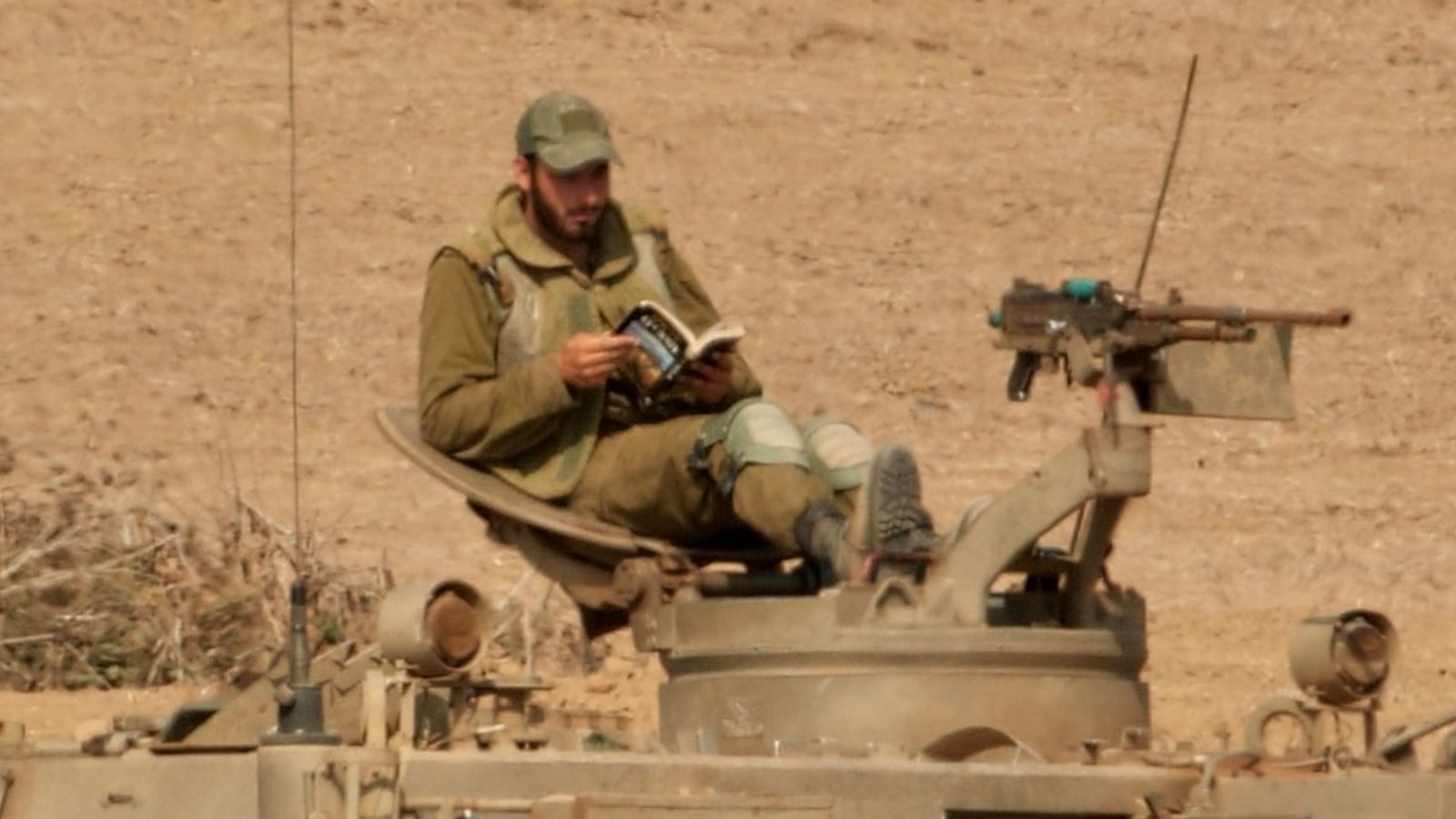
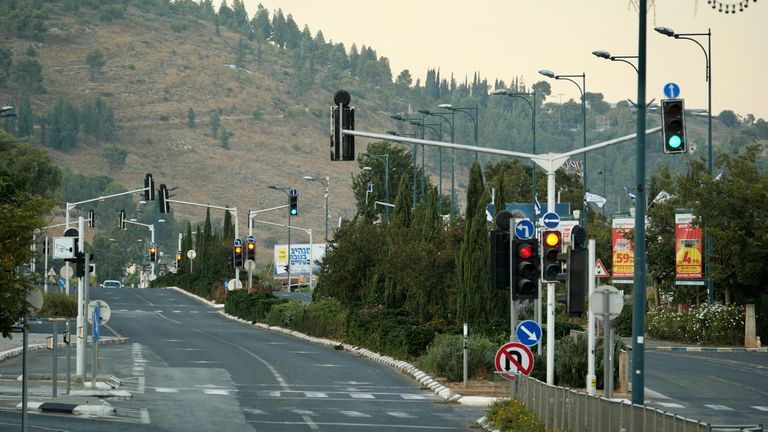
An air raid siren blares out and we dive for cover near a newspaper stand.
A few seconds later, there is the boom of interceptor missiles taking out a rocket fired from only a few miles away.
There’s hardly anyone taking cover though because we’re in the north of Israel near the border with Lebanon, and the rockets have been fired by Hezbollah, not Hamas, into towns that have emptied.
Kiryat Shmona was one of the last major towns to receive mandatory evacuation orders here in the north. Now the region is occupied by the military.
Follow live: Israel conducts raids inside Gaza – as hostage’s desperate last WhatsApps revealed
The roads are deserted, the towns are empty, everything is shut.
Everyone knows the Hezbollah rocket threat is real, and most accept it’s greater than anything emanating from Hamas in Gaza.
In parts of southern Israel though, the situation is slightly different.
Although life is far from normal, some shops and restaurants are open and many people outside the strict military zones have stayed – although others have left.
The military build-up here is far more obvious than in the north, and it has been nearly continuous for the best part of two weeks.
We’ve watched as rocket systems that can fire multiple warheads in seconds have been moved into position, and we’ve seen tanks and armoured personnel carriers being transported on major highways.
Read more from Sky News:
Soldier wounded while freeing kibbutz wants to return to frontline
Israeli soldier killed by Hamas fighters during ground raid
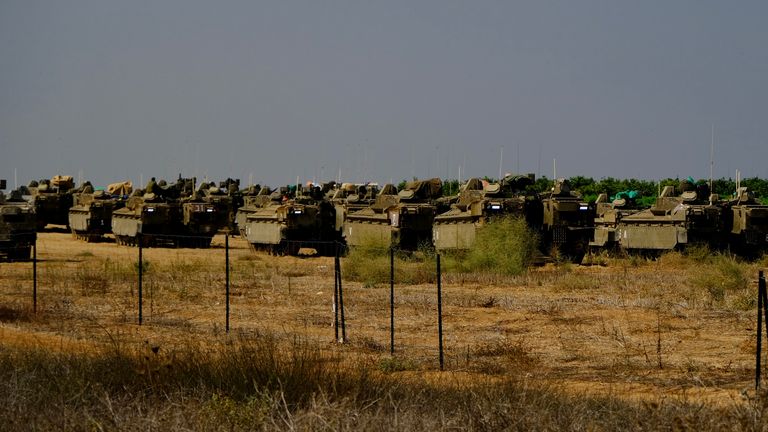
At one artillery position, we saw soldiers waiting in place for their next orders, and tanks with their turrets taken off – they’ll be used to carry troops because the armour is so much stronger than normal carriers.
Much of southern Israel and all the land bordering Gaza is now a closed military zone.
Although Israeli soldiers are already operating in Gaza on specially identified missions, the plans are in place for a full incursion.
The military appears ready, but what’s becoming clear here is the hostages being held in Gaza are a real problem for the government.
Israelis we have spoken to broadly believe a major move into Gaza is both necessary and inevitable, but there are divisions here over timing and whether it should wait for a potential hostage release.
In the town of Netivot, which is not far from Gaza and in the closed military zone, we met businessman Eden Mano. He runs the computer shop in the town, but it’s now closed.
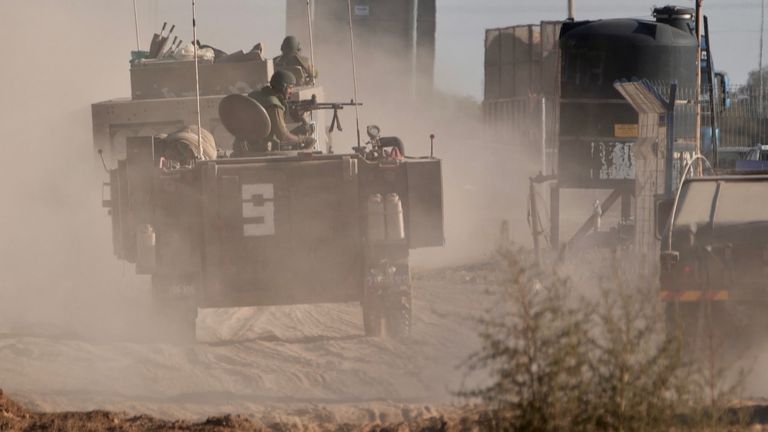
Outside the bakery, he got into an argument with a family sitting down for a morning coffee.
They think Israel should continue its bombing campaign, and not enter Gaza until the hostages are out, but Eden is convinced a military operation should begin right now, regardless of the fate of the hostages.
“Hamas is playing this card with the hostages, if you don’t stop striking, we’re not going to release the hostages, they’re playing this card, it’s been going on for years,” he told me.
“We need this operation, we need to go inside, we need to rescue as many hostages as possible, and we need to eliminate Hamas. This is the price of war, unfortunately this time we are paying with innocent civilians’ lives.”
Read more:
Analysis: This could lead to war with global impact
Braverman to challenge police over ‘jihad’ chants
Hamas fighters ‘carried instructions on how to make chemical weapons’
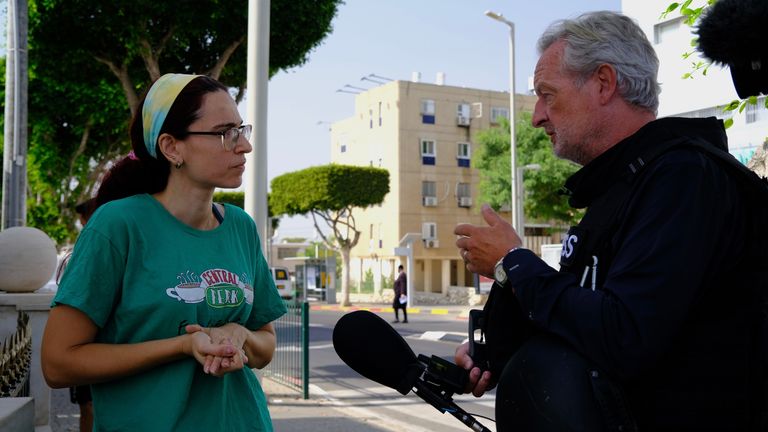
We also met Olga Entel, who lives in a kibbutz with her husband and three children. She told me she had just left her home for the first time in 17 days to get supplies in Netivot.
She is conflicted about the way forward but her inclination was for a delay when I asked her if the most important thing is getting the hostages out.
“I believe most of us believe in that, yes.”
“But you know I cannot think what is right or what is wrong. It’s not in my power to decide, I just want everyone to be safe.”
The sense I get is that Israelis are in a sort of limbo now.
They are waiting for attacks, waiting for an invasion, and waiting for the hostages to come home.